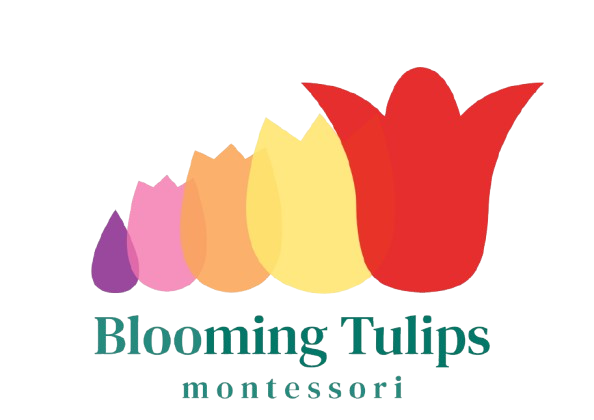Your little one’s brain is truly amazing! Just think about all the incredible things your child will learn and achieve from birth. It’s truly inspiring.
Your little one’s brain matures differently from adults’ until age six. During these early stages, their mind functions like a sponge, effortlessly and continuously absorbing vast amounts of information from their surroundings. Likewise, they unconsciously absorb everything in their environment. Maria Montessori called this the “absorbent mind”.
Your little one’s early years are especially crucial for growth and development. Believe it or not, over 80% of their critical brain structures are developing by age five! That foundation will serve as the building blocks for the rest of their life.
As soon as a baby is born, their brain starts absorbing the sounds around them. This is how they begin to learn the nuances of their native language and prepare to speak it. Hearing different sounds, they begin to understand which ones they can make themselves. So, the more they hear, the more they can speak. It’s incredible how this sensory experience helps their brain develop this way.
Children go through two stages of the absorbent mind, according to Montessori; The first one is where children unconsciously absorb information from birth until around three years old. During this stage, they learn to perform actions like walking, standing, using their hands, and even speaking without realising it. As a parent, you’ll notice your toddler imitating the behaviours that you model. Every time they do that, they create a foundation for building themselves into the person they’ll become. They’re also gradually progressing toward the conscious phase of development.
Around ages three to six, your little one begins the conscious stage of development. Their minds are still like sponges, soaking up information with ease. However, they actively seek specific knowledge as they explore their newfound abilities. During the conscious phase, they learn essential skills like order and sequencing, early maths concepts, music, and letter shapes and sounds. These are all stepping stones to their future success in maths, reading, and writing. In addition, this stage is essential to refine their physical abilities like movement, balance, and basic coordination.
The brain’s executive functions are related to focusing, decision making and concentration skills. Montessori education enables children as young as three to select their preferred daily task while utilising these executive functions. Unbothered by artificial time restrictions, children are encouraged to work on tasks that pique their interest, improving focus and motivation. Instead of having unrealistic expectations of young children’s attention spans, Montessori education helps children thrive by allowing them to choose tasks and work at their own pace. Starting early with interventions can make a notable improvement in executive function.
When a child engages in an activity repeatedly during her sensitive development period, it’s a sign she’s experimenting with suitable material. But if she isn’t interested, help her discover something she enjoys and present the activity another day. Once you sync with a child’s learning ability and development speed, their early academic skills will flourish, with self-assurance and confidence to make wise decisions. Moreover, this ability to make good choices is a more reliable predictor of future success.
Young children are like sponges that soak up knowledge from the world around them. Research shows that certain parts of the brain may not mature as they should without proper stimulation during these early years.
Learning is like building blocks that must be placed in order. These early years serve as the foundation for future, more complex concepts. It all starts with the child’s surroundings. How does the child interact with their environment? They do it with an innate sensitivity that makes everything around them fascinating. These experiences become a part of the child’s being, ingrained in them in a way that goes beyond just their thoughts.
To support life, as per Maria Montessori’s definition of learning, we must first comprehend its necessities. It all starts with having an initial knowledge of human growth stages.
“The only thing the absorbent mind needs is the life of the individual; give him life and an environment and he will absorb all that is in it. But, of course, if you keep a camera in a drawer you will never get any pictures. It is necessary for this absorbent mind to go out into the environment.” ––Maria Montessori

Hi, my name is Dilia. I am the founder and managing director of Blooming Tulips Montessori Nursery. I am passionate about childcare and am doing my part to help make our world a better place by caring for, educating, and nurturing young hearts and minds.
“I believe the childcare practitioners are doing one of the most important jobs in the World; ‘They can play their part in making this world a better place by providing quality care and education for children. As a mentor and coach it is my obligation to make sure I do everything I can to create this mindset in my practitioners.’ Once this belief is internalised, that person can find meaning in even the most mundane tasks.” – Dilia Bas
Parents, Let’s work together!
“Your child is a unique individual with boundless potential and possibilities. By working together, we can unlock the doors to a life full of excitement and fulfilment. We can inspire young learners to embrace a life-long love for knowledge. From thinking mathematically to creating masterpieces, let’s nurture your child’s unique potential. Help your child to discover their capabilities and build deep personal values that will serve them well through adulthood. Let’s help them become unstoppable forces of good in the world. Together we can do this!” Dilia
